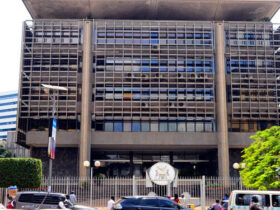In a significant setback to Dodoma’s global financial integration, Tanzania has lost a crucial correspondent bank due to alarming deficiencies in its anti-money laundering and combating the financing of terrorism (AML/CFT) framework. The International Monetary Fund (IMF) underscores this vulnerability in its recent Country Report (No 23/425) for Tanzania.
A correspondent bank, acting as an intermediary between financial institutions in different countries, facilitates various transactions such as wire transfers, business dealings, deposits, and document handling on behalf of another bank. While the IMF acknowledges the well-capitalized and profitable nature of Tanzania’s banking sector, it raises concerns about rapid credit growth, high credit concentration, and financial dollarization.
The Financial Action Task Force (FATF), a global watchdog on money laundering and terrorist financing, has placed Tanzania, along with Uganda, South Sudan, and the Democratic Republic of Congo, under “increased monitoring.” The IMF notes that Tanzania is taking steps to align its legal framework with FATF standards but emphasizes the need for effective coordination among government institutions to address existing gaps.
IMF reveals that Tanzanian authorities are working on establishing a risk-based supervisory approach for AML/CFT, assigning supervisors for different sectors and implementing assessment methodologies. Despite this, progress has been limited, prompting the call for coordinated efforts.
While Tanzania’s economy is projected to recover, with a growth rate of five percent and 5.5 percent in 2023 and 2024, respectively, potential risks loom. These include regional conflicts, commodity price volatility, global economic slowdown, climate change-related disasters, forex market imbalances, and challenges in executing public investment projects.
The IMF warns of risks to the medium-term outlook, citing potential complacency in reform implementation and spillovers from geopolitical economic fragmentation. Meanwhile, the World Bank has recently approved $1.14 billion in loans to Tanzania, aiming to support the private sector, develop the commercial capital, and combat the effects of climate change.
Source: The East Africa



















Leave a Reply